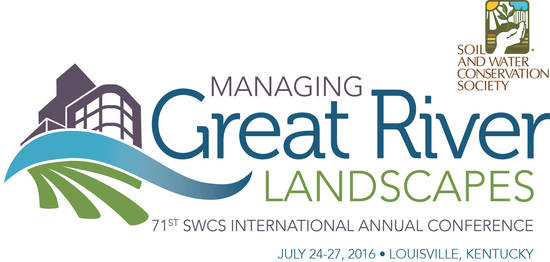On the third [business] day of Christmas, the Iowa Water Center gave to me…descriptions for the breakout session Strategies for Social Engagement.
The following presentations will take place at the Iowa Water Conference in Ames on the afternoon of Wednesday, March 23, 2016. Registration for the conference will open in January.
1000s of Acres: Adding Conservation Partners
Angie Carter, Department of Sociology, Anthropology, and Social Welfare at Augustana College in Rock Island, IL & Jean Eells, E Resources Group
Women farmland owners are an important part of watershed level conservation changes in Iowa. Learn from researchers and landowners about how PhotoVoice, a participatory research method, is being used in the Raccoon River watershed to engage this important demographic.
Water in Iowa: Voicing the Lexicon
Chad Žmolek, Mike Todd, Joe Brekke and Ames High School Bluestem Institute students
Students from the Bluestem Institute at Ames High School share insights gained from their journey across Iowa examining water quality issues in collaboration with Project Localize, an educational program that helps classrooms identify and promote sustainable economic, cultural and social progress in their communities. As part of the project, students created unique posters shining light on terms related to water quality. Following the presentation, the students will be available during the conference break to answer questions about their posters, which will be on display in the second floor lobby area.
Iowa farmers’ perspectives on actions toward nutrient reduction strategy goals
J. Gordon Arbuckle, Jr., Associate Professor/Extension Sociologist, Department of Sociology, Iowa State University
In spring 2014, 1,128 Iowa farmers were surveyed to measure their knowledge of the strategy, their attitudes and concerns toward it and its goals, and, importantly, their willingness to take action to help meet those goals. A regression analysis was conducted to evaluate factors that influence farmers’ willingness to take steps to support the strategy. The results of this analysis will be shared.
retaiN Iowa: Engaging Farmers in On-farm Nitrogen Testing
Jamie Benning, Water Quality Program Manager, Iowa State University Extension and Outreach & Clare Lindahl, Executive Director, Conservation Districts of Iowa
retaiN seeks to give farmers the tools and information they need to make the best conservation decisions on their land, starting by helping farmers test for, understand and take steps to retain their nitrogen. The retaiN project developed nitrate testing kits that facilitate farmer engagement in collecting on-farm nitrate concentration data. The retaiN kits were initially distributed in the summer and fall of 2015 through existing watershed projects and ISU Extension field specialists. retaiN is a collaboration between Conservation Districts of Iowa and Iowa State University Extension and Outreach and Iowa Learning Farms with support from the Iowa Department of Agriculture and Land Stewardship, Division of Soil Conservation and Water Quality.
